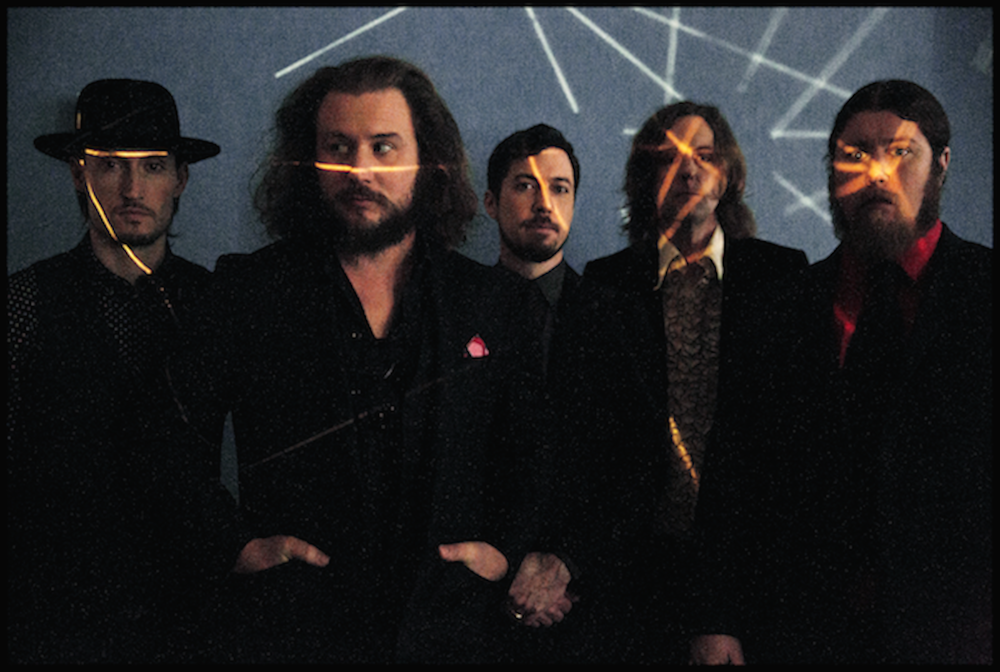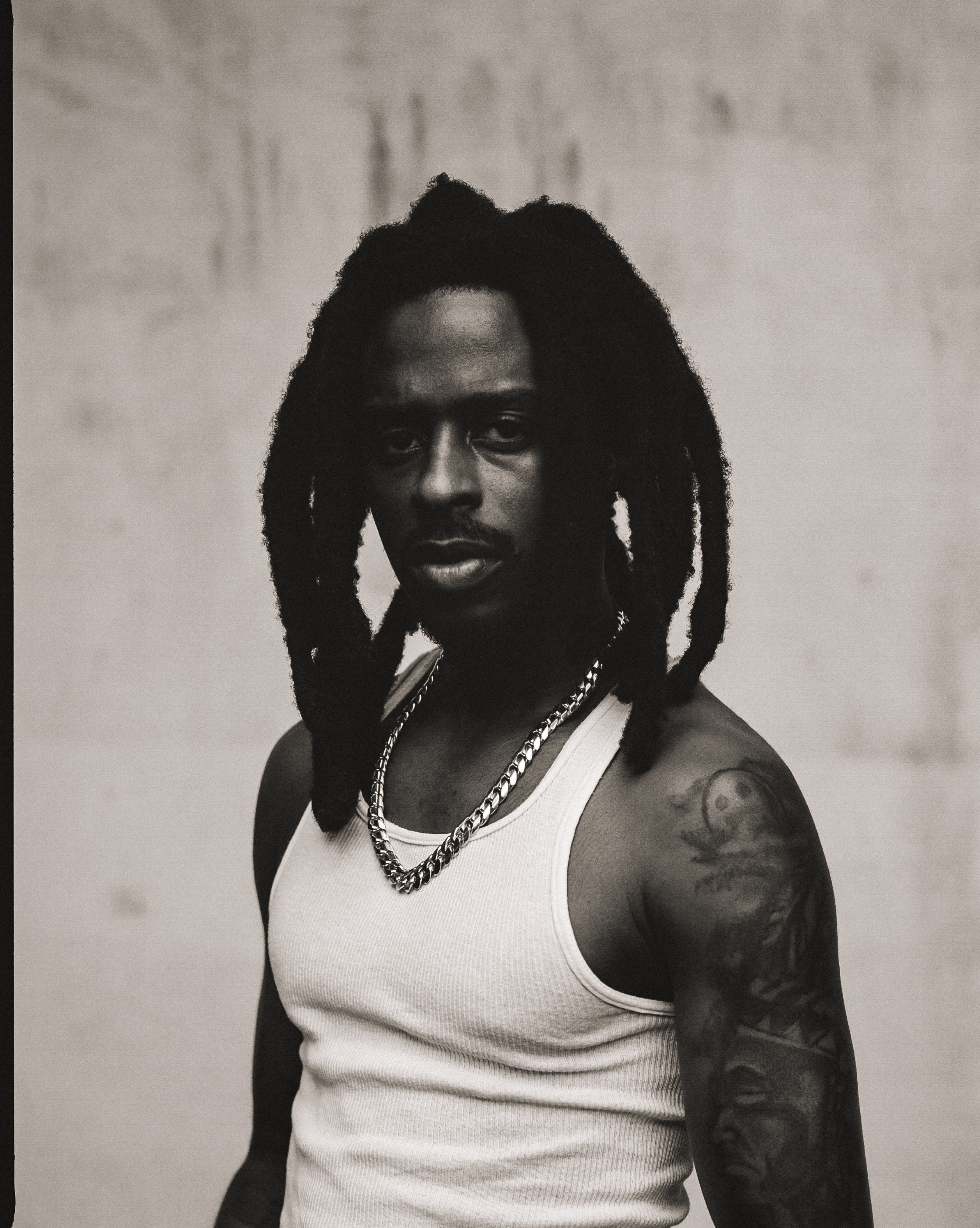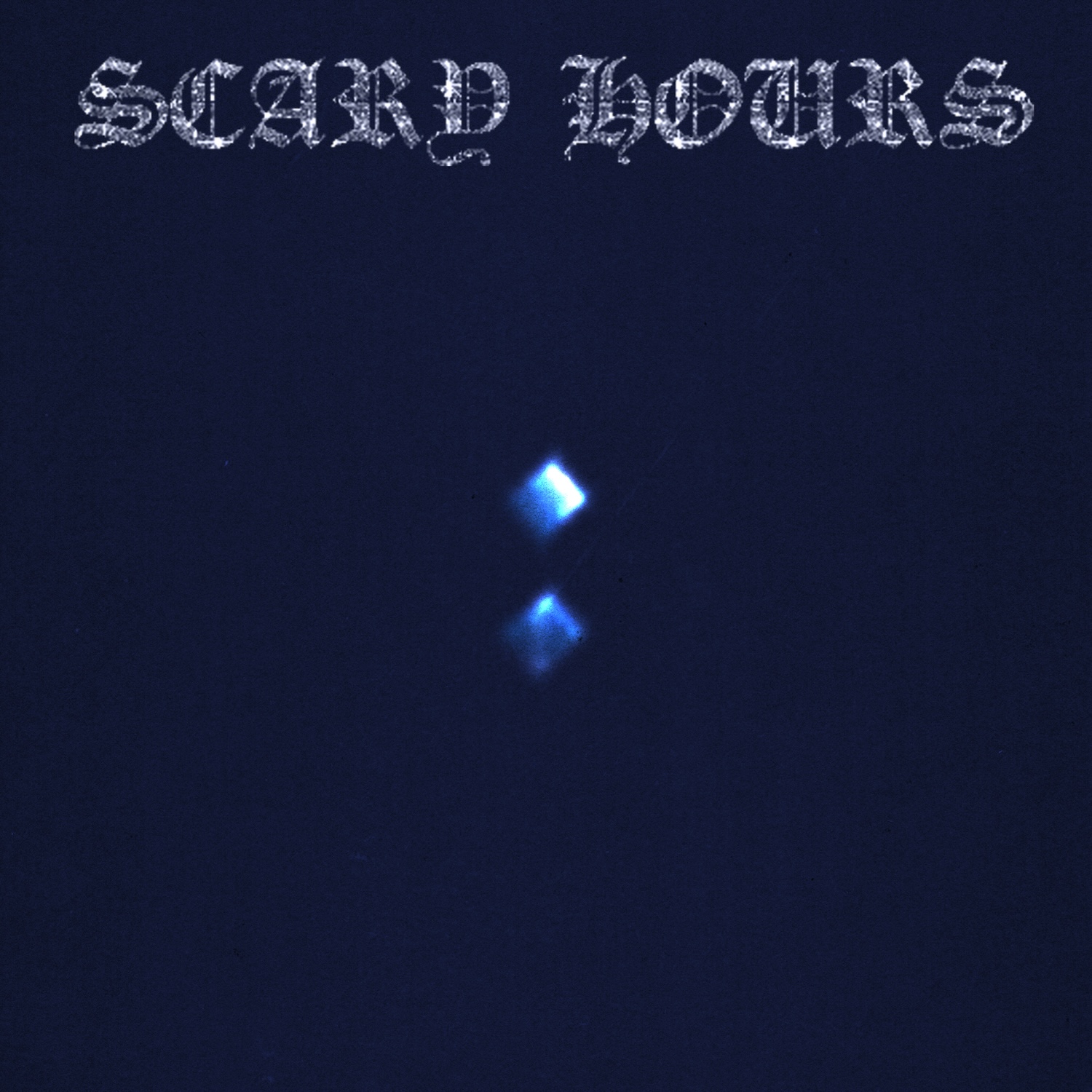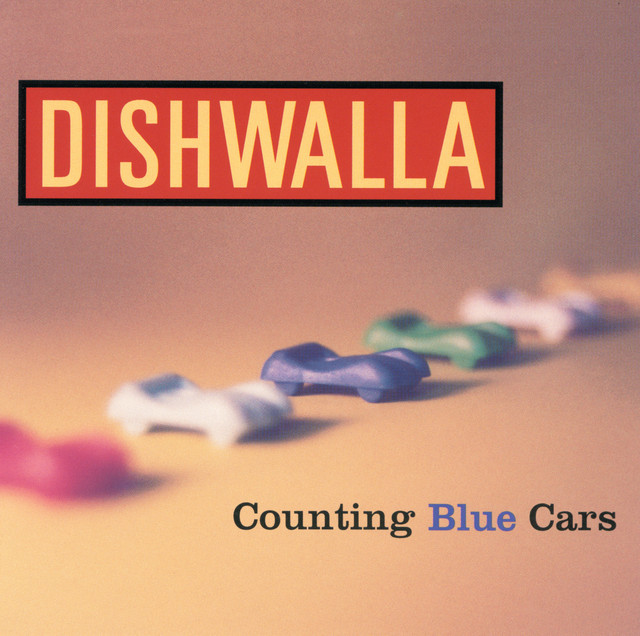In the stream of reviews and interviews published before My Morning Jacket's new record The Waterfall came out yesterday, two threads have emerged as the main narrative of the band's seventh release: that it's their best since 2005's Z, and that it is an uncharacteristically dark release from a group that made their name on an anthemic, awe-inspiring brand of constantly mutating rock music. Both are more or less true, though the former isn't necessarily saying much. MMJ put out two other albums since Z. There was 2008's Evil Urges, which has some striking standouts that have remained reliable inclusions in the MMJ canon but is otherwise most fans' easy candidate for the band's worst album, and then Circuital in 2011, which was very, very good and gave us some strange gems like "Victory Dance" and "Holdin' On To Black Metal," but also didn't quite live up to the heights of earlier MMJ. The Waterfall is stronger overall than both, a sharp 10-song collection that gives you a lot of what you'd want and expect from a MMJ record while still subtly injecting enough surprises into the songs -- in terms of both sonic quality and form -- that help maintain the feeling that no two MMJ releases are overly similar, despite the host of qualities that people regularly attribute to them as shorthand ("reverb-drenched alt-country/Southern rock indie band" being the most common).
So this is why the second quality is the more intriguing. If you're not a fan, I suppose MMJ can simply come off as a classicist-leaning rock band prone to weird strands of experimentation here and there. But they can also keep you guessing, even with the constants that do pervade their work: frontman Jim James' cosmic presence of a voice; the epic swell that destines so many of their songs for overwhelmingly cathartic live experiences; the sort of guitar fireworks few other bands in the indie sphere so convincingly commit to record anymore in the 21st century. All of that's still here, but it is shot through with a different kind of darkness that, as chronicled in profiles by Rolling Stone and Grantland, stem from both psychological and physical wear experienced by James, who's still MMJ's lead songwriter. "Get The Point," "Big Decisions," and "Only Memories Remain" all suggest a relationship collapse, though there was also literal, physical damage -- James had to undergo surgery for a herniated disc during recording. In both profiles, James talks of years of touring and partying leaving him weathered, and there have been a few other serious injuries and health conditions along the way. The culmination of all that rears its head here, with James telling Rolling Stone that the album title "is a metaphor for how life is constantly beating you down, and you really have to take time to stop it and get through."
[videoembed size="full_width" alignment="center"][/videoembed]
It's a surprisingly negative sentiment coming from James, who has usually given off mystic hippie vibes despite all the sad songs he's written. The thing about The Waterfall is that, tonally and musically, many of its songs do sound like they're grappling with darker, heavier ideas than MMJ have ever countered in the past. That infamous reverb lent 1999's The Tennessee Fire and 2001's At Dawn haunting qualities, like old American ghost stories that had been percolating in the Southern swamp air forever before James dug into some strange, hidden place to pull them out. But below often glistening surfaces and testaments of belief, there's an actual, human moodiness that runs through The Waterfall, moments where James sounds bitter, pissed off.
Where that gets channeled musically on the album splits, more or less, in two directions. There's material where brooding complicates tracks that otherwise might sound pleasant. "Get The Point" is the kind of ruminative acoustic song that at this point feels like an obligatory inclusion on any MMJ record. It's unnecessary -- MMJ classics like "Bermuda Highway" and "Golden" cast a long shadow -- but not unwelcome, at least when the break-up bite of "Get The Point" distinguishes itself from something like "Wonderful (The Way I Feel)." Elsewhere, sentiments like "Well it's a thin line/ between lovin' and wasting my time" and firebombs of distorted guitar rupture the shimmery soul of "Thin Line." The otherwise-would-be-swoon of "Only Memories Remain" catalogues the passage of time and relationships, its title becoming a repeated mantra that meditatively erodes any surface-level bliss the song might've given off musically. "Compound Fracture" might be small by MMJ standards, with James hanging back with a restrained falsetto coo even on the chorus and the song never boiling over into some massive conclusion, but it's also one of the obvious highlights on the album. It's weirdo pop with so much groove and so much swagger, I've woken up with it stuck in my head countless days in the last two months. But take the name, and opening lines like "Compound fracture, gonna ring the gong/ And sound a warning of what's to come/ If we ain't careful as to where we step/ Paradise calling or untimely death." It isn't hard to hear remnants of James' sustained serious injuries after falling off a stage in 2008, or the other physical markers of his life until this point. You're reminded that drummer Patrick Hallahan's infectious stomp of a drumbeat is propulsive because it has to be, to get the narrator through that waterfall barrage of life experience.
[videoembed size="full_width" alignment="center"][/videoembed]
But the peaks of the album come from the band indulging their psychedelic side in an unsettling way not dissimilar from the eeriness that lingered at the edges of The Tennessee Fire and At Dawn, but more directly descended from the foreboding psychedelia of "Victory Dance," a one-time outlier in their catalog. There's an aggression to them, like "Spring (Among The Living)" and "Tropics (Erase Traces)" have more demons to spit out. There's a trilogy of these parenthetically titled, dark-psychedelic tracks made between those two and the pseudo-title-track "In Its Infancy (The Waterfall)," for which I've begun considering third track "Like A River" the prologue. Something about James' high keen in that song is off-putting at first, ethereal and unnerving. When that tumbling, gorgeous coda of wordless chants and melodies hits, it has that feeling like it could be euphoric or deeply sad, the same as At Dawn classics like "The Way That He Sings" and "Xmas Curtain." The end of "Like A River" is like the world opening up, but what it winds up revealing is the twisty, dense psychedelia of those parenthetically titled songs, like someone pulled back a curtain and found some kind of celestial abyss to dive into. The last of the three, "Tropics (Erase Traces)," climbs to one of those classically cathartic MMJ endings but with a mad-eyed James screaming to "Erase traces, of the past/ Do the math, repeats itself."
Before the coverage of The Waterfall, including a lot of very positive reviews, started up, I'd begun to think of MMJ as having aged out into a kind of Pearl Jam situation: the sort of band that puts out records and has an exceptional live reputation, but basically plugs along on the power of a fervent fanbase; the kind of artist whose releases can come and go without the indie mainstream or the media taking too much notice, but it doesn't really matter because they've got their own little subculture going on and everyone involved is psyched enough. And I was fine with that -- I didn't need MMJ to be a part of the big narrative because I'm in that fanbase and I'm totally cool with seeing them dozens of times and simply talking about their music with friends who are similarly obsessed. They'd had their sort-of indie mainstream breakthrough moment with Z. And despite Evil Urges and Circuital being their highest-charting albums (#9 and #5 respectively on the Billboard 200), it felt like we'd reached a point where only the fans cared, anecdotally speaking.
Clearly more people were invested, or at least into the band's music, than I'd been perceiving, and I began to think of what a weirdo rock band like MMJ means in the bigger scheme of things in the 21st century. Last year saw a handful of breakthrough albums that wound up dominating end-of-year lists, albums from similarly tradition-indebted artists that could be seen to be akin to MMJ to varying degrees. There was bleary, washed-out psychedelia of the War On Drugs' Lost In The Dream, the confessional HEAL from Strand Of Oaks, and the intricate stream-of-consciousness autobiographical folk of Sun Kil Moon's Benji. Like MMJ, each of these artists found something new and exciting in styles that many might've been written off as played out. In this young century, this kind of classicist rock is always somewhat off to the side of what's going on in the cultural conversation. We're well past rock's mainstream prime, but even in its last forms -- whether Alt Nation and its long, disastrous post-grunge hangover, or the rock revival of the early '00s -- this kind of rustic, ragged, yet occasionally anthemic rock music might garner strong reviews along the way but is never really hip. In the poptimism era, being a fan of rock bands like the War On Drugs or MMJ could be perceived as a safe, traditionalist kind of taste, even as this sort of stuff has become a sort of outsider genre.
Maybe it's because the rest of the Stereogum staff has taken to referring to me as Young Classic Rocker Ryan Leas and, you know, I have to stay on-brand, but HEAL, Benji, and Lost In The Dream were also three of my favorite records from last year. And excepting Sun Kil Moon's more veteran Mark Kozelek, I've started to look at MMJ as a kind of godfather band to a certain strain of 21st century rock music that looks to past sounds and imagery and the present in equal measure, in search of new mysteries in what could easily be considered a spent form. You can take this further back, too -- to the cavernous moments in earlier Grizzly Bear, to Fleet Foxes, to Band Of Horses. And I don't think it's a stretch to expand it out to artists who sound less explicitly like MMJ, to the National's output last decade or to latter-day Walkmen, to Volcano Choir or even Sharon Van Etten.
[videoembed size="full_width" alignment="center"][/videoembed]
You can hear MMJ easily in the swelling melodies and chiming guitars or mid/late-'00s Grizzly Bear, Fleet Foxes, and Band Of Horses, but what I'm talking about is more of a conceptual debt. The idea of going back to classic American iconography and sounds in a time where they'd seem illegible, the act of still considering that there's some mystic answer along the stretch of a highway even as the mythic diners and factories that'd line them have fallen decrepit. The idea that there could be still be a search for all this wonder across the American landscape in a digital era where, once we reach a place, it might not live up to the photoshopped or Instagrammed image we already had in our heads. And the idea that the way to explore this still lies in an American brand of rock music, a new slightly off-kilter version of it for the 21st century.
The tone of this stuff, more often than not, strikes me as one of depletion. The National turned world-weariness into anthems on Alligator and Boxer, while the second act of the Walkmen felt like one long, dejected shamble down a dusty American road. To return to more recent stuff, Strand Of Oaks couch intimate stories of personal destruction in big-screen rock, sometimes of the classic variety and sometimes infused with fractured synths, but always frayed around the edges. The War On Drugs might be MMJ's most direct spiritual descendent, an artist obviously infatuated with American rock music but warping it with heavily processed guitars, loops, and smeared synthesizers. It's a phantasmagoric, hazy vision of the American landscape.
[videoembed size="full_width" alignment="center"][/videoembed]
We don't look to rock bands too often for the major, generation-spanning statements anymore. Even with the mainstreaming of indie last decade, many of our critically- and fan-adored big rock bands are of a smaller-scale. The National are one of my favorite contemporary bands, but they might be one of the best recent examples of this -- a brainy, muted brand of anthemic rock music that somehow felt appropriate for the lower hopes of a post-recession America. Artists like Strand Of Oaks and the War On Drugs might have big-screen ambitions and moments where they achieve them, but it's almost always still with an underlying sense of small-screen tools and behavior. Artists playing with those strains of Americana in the '10s sound like they're sorting through the abstracted detritus of all of our country's old iconography, and there is this oblique sense of defeat. Like the big idea, the big answer is still always somewhat lost off in the distance. Lost in the dream, I suppose.
Don't get me wrong -- this is often what I love about these artists. This quiet sense of beleaguered weariness at trying to make sense of this moment in America. It's resulted in some of my favorite music, the kind of stuff that, while some could write it off straight-up rock music, has this new, lost quality that is totally legible and of-the-moment when you've come from the skeleton of a formerly prosperous coal city in Pennsylvania. And that specificity might vary across the country, but there'd be plenty of similar circumstances.
These artists continue in a sort of new Americana tradition that MMJ was at the beginning of. You could also look back to one of MMJ's own progenitors in Wilco, but I hear that depletion and world-weariness in them, too. Here's what's always been different about MMJ. Not knowing or caring what your average listener might expect from rock music in 2015, MMJ are committed to the search for wonder. The sense that there's something ineffable and otherworldly to still be located in guitars and voice and drums, the sense that there's something ineffable and otherworldly to still be located when you use those tools to sift through the landscape around us. It's easy to lose a sense of wonder in the 21st century, in America. The sensory overload these days, the sheer ability to access anything at any time, can be overwhelming to the point of deadening. It's harder for something to be shocking or beautiful or incredible because you see a stream of such things in your Twitter feed every day.
[videoembed size="full_width" alignment="center"][/videoembed]
Earlier in this piece, I focused on all the ways in which The Waterfall is a darker MMJ album. What I didn't talk about there is how, while everything might stem from a darker place than usual, the album drives itself toward resolve and hope. This is why catharsis is so crucial to their music; this is why James' voice and the voluminous reverb and the seven- or eight-minute multi-part sagas are so crucial to their music. They never sink into depletion in a musical or physical landscape where they easily could. And they'd get something great out of it, too. But they commit, fully and over-the-top, to the idea that there's always more to discover and explore. In rock music, America, whatever. They peel the world back open, show you all the things you've missed. You have to have some attachment to the idea of big guitar music for it to work on you, I guess. And all the things I've just said, to the unconvinced casual listener of MMJ, might seem like it could be written off like James' hippie-ish quotes. But this is why there's a special weight to The Waterfall -- it does have that darker core that acknowledges realities in life the same way the more restrained aesthetic of our other great 21st century rock bands might. And yet James' whole point is to learn how to get through the waterfall. He refuses to stop seeking. The narrative of MMJ might be a small one in search of grand things, but that might be what makes it a story worth telling today.
In March and April, I spent three and a half weeks driving from New York to LA, around California, and back across the country on tour with a band. I had already had The Waterfall for a month or so, and I'd loved it for a while. But it was on the drive back across the country with my brother, through a winding highway in Colorado with the Rocky Mountains rising up on either side of us, where I experienced that MMJ experience of peeling the world back open. I thought of the origins of the album, of how they recorded in a house in Northern California and took night walks on the beach, and how its cover is a hyperreal vision of the sort of scene they could've stumbled upon. It's overdriven, like a heavily edited digital photo and yet with the feeling of a real life scene too vivid for daily life, but the kind you stumble on around the next corner, sometimes. Like it's made up of colors you'd forgotten existed. I was reminded of everything I'd passed through: the impossible expanse of Texas, Sahara-like dunes in Arizona, Martian Nevada, the ancient mountains in Utah, and now this passage in Colorado. And then for a while there, as The Waterfall played and we drifted through the highway's various bends, I saw the world their way again.
[videoembed size="full_width" alignment="center"][/videoembed]






